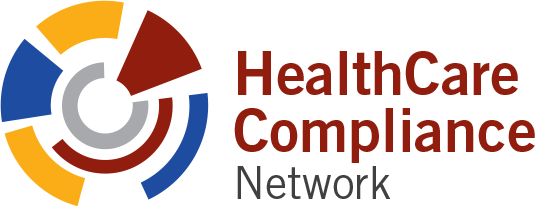We recently sat down with K. David Holmes, Consulting Chief Program Officer and Compliance Office for Sunny Days Sunshine Center, a large and prominent development center for children with autism spectrum disorder and other developmental delays, to talk about the organization’s compliance journey and how building a more robust compliance program has fortified their mission of excellence to provide children and their families with the highest level of care and services.
You Don’t Know What You Don’t Know
This is the most common compliance pitfall for a company and most organizations vastly underestimate the true scope of compliance and what is required to not only meet all regulatory standards but to achieve a heightened level of operational continuity. Organizations think – and have the intention – that they are operating compliantly, but just don’t realize the breadth of requirements so end up with a “little over here, little over there” approach, not realizing the risk and exposure that is being left on the table.
“It really boils down to what do you want for your company. Do you want a successful ethical company? That’s what we want. We want to grow and we want to do it the right way.”
Running into some frustration was the catalyst to take a step back and realize that despite the many policies and procedures they had in place, David explained, “we weren’t going down to the deepest level. We just didn’t know about it.” They committed to turning this revelation into action, partnered with HealthCare Compliance Network (HCN), and began a year-long journey to redefine their approach to compliance.
Committing to a Culture of Compliance
“Understanding the number of policies and continuity of information that needed to be put together – the oversight committee, the exclusion process, – it just goes on and on. It’s a never-ending issue.”
Compliance is just simply not something you can purchase and put on a shelf and think that you’re covered. It needs to be operationalized and worked on as part of everyday workflow and communication. For Sunny Days, building a culture of compliance came in the form of a partnership with HCN. Regular weekly meetings between the two companies allowed for discussion and education around each area of compliance which led to changes in company procedures that threaded compliance into the core of their business practices. “If we didn’t have a policy, HCN had a policy that we could turn around and incorporate into our policies and procedures. It was a great lift for us.”
The key to successful implementation was turning everything into policy form and disseminating it to everyone in the whole organization. David explained that “this has been the biggest change. People know where to go now. They hear about compliance all of the time and know the committee is representative of all facets of the organization. They understand that if a problem gets reported that we take that seriously. There’s a good line that comes up of accountability.”
Proof in the Details
“Little issues are being addressed on a day-to-day basis and it’s being integrated into our standard operating procedures and it’s raised the bar.”
A common misconception about compliance is that it’s in place to prevent problems but in reality, no matter how much you try to prevent, there is going to be something that happens. Having a process that proactively uncovers and handles issues appropriately is huge in risk aversion.
Coding audits proved to be an area of unexpected benefit for Sunny Days. David talked about how as an organization, they were familiar with HIPAA and OSHA, but the coding audits, “bring it all the way down to the practitioner. It really showed me with the use of audits we can address problems, quantify issues and resolve them.” They implemented a hotline, exclusion checking and solid process on required annual trainings, then took it a step further by committing to testing and reporting on a monthly basis.
Exclusion checking is a regulatory requirement but can be a challenge to track and David admittedly “didn’t understand before that those administrators who only touch the books also are responsible for being trained and going through the exclusion process.” They now have a consistent and thorough process that brought a true peace of mind to their business of helping children and their families thrive. As David explained, “it’s nice to be able to double check and know for sure that the people who are serving the children that we are entrusted with are doing so with legitimate backgrounds.”
This consistent commitment to details gives them the ability to catch yellow flags before they turn red. David said they have had no issues but, “all those little items being addressed on a day-to-day basis and it being integrated into our standard operating procedures has raised the level – it’s raised the bar.”
Ensuring a Strong Future
It’s a lifelong process. As long as we’re in the business, we’re going to have to continue to improve our compliance program and work to make sure to the best of our ability, that we have the most compliant organization that exists. It’s hard but I think it’s a must.”
David and his management team can see the impact a culture of compliance has on future company health and growth. He notes, “we’re very proud of what we have going forward and we’re able to look any company in the face in terms of mergers and acquisitions and confidently say that this is how you’re going to come on board and this is how we’re going to do business. And that’s healthy.”
Sunny Days established itself on a high standard of ethics and has found that a culture of compliance has unified their organization, in part through creating a system that staff can trust and feel invested in. David commented that, “it raises the level of awareness that makes staff understand there’s a culture here.” Sunny Days Sunshine Center’s commitment to building a robust culture of compliance has not only fortified their mission of excellence, but also ensures a strong and ethical future for the organization. As they continue to invest in their company and their culture of compliance, they stand as a model of success, ready to face new challenges and opportunities with confidence and integrity.

